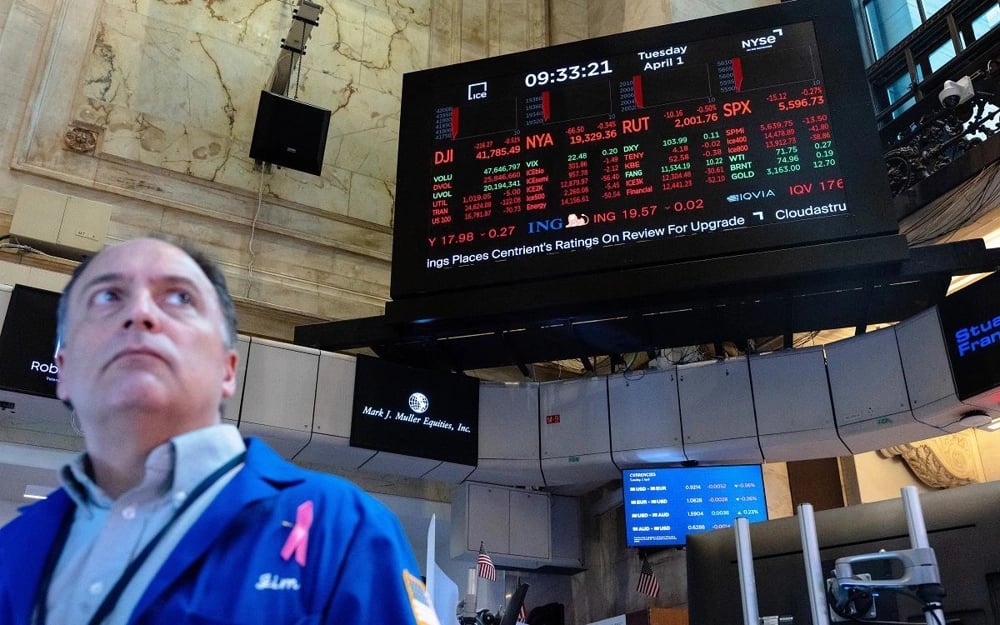U.S. Stock Futures Decline After New Chinese Tariffs Take Effect

U.S. stock futures turned negative during Asian trading hours on Thursday after China imposed new tariffs on American goods. This development came despite President Donald Trump’s announcement of a 90-day pause on most retaliatory tariffs, highlighting renewed volatility in global financial markets driven by rising geopolitical friction between the world's two largest economies.
Market Overview: Major Indexes Fall
At the time of Thursday morning, the main stock indexes showed a noticeable decline:
S&P 500 Futures fell by 0.8% to 5,448.50 points
Nasdaq 100 Futures dropped 1.4% to 19,014.00 points
Dow Jones Futures slipped 0.3% to 40,722.0 points
The decline followed China's move to increase tariffs on U.S. imports from 34% to 84%. These tariffs took effect at 8:01 a.m. Moscow time on Thursday and were implemented in response to the U.S. decision to hike duties on Chinese goods.

Trump's Pause Excludes China
President Trump announced a 90-day suspension of reciprocal tariffs for most of the U.S.'s trading partners. However, this exemption did not include China. Instead, tariffs on Chinese imports were raised from 104% to 125%, intensifying the already strained trade relations between the two economic giants.
Despite a temporary boost following the announcement, uncertainty quickly resurfaced. During Wednesday's regular trading session:
The S&P 500 rose by 9.5%
The Nasdaq Composite surged by 12.2%
The Dow Jones Industrial Average climbed nearly 8%
However, optimism gave way to caution as markets reassessed the broader implications of ongoing trade disputes.

Caution Dominates Amid Policy Volatility
Analysts warned that the market’s reaction may be short-lived, pointing to past instances where the Trump administration had reversed tariff decisions.
«Caution remains warranted — and it’s important to remember that President Trump still needs revenue to finance promised tax cuts. It would be surprising if today’s announcement truly marked a return to 'common sense'," analysts at ING wrote in a client note».
These concerns have contributed to growing skepticism over the durability of the tariff pause, especially given the administration's shifting stance on trade policy.
Outlook: Trade Conflict Continues to Drive Market Dynamics
The renewed round of tariffs and persistent unpredictability in U.S. trade policy remain central factors shaping market behavior. Although Trump's announcement of a temporary reprieve offered brief relief, the exclusion of China suggests that the trade conflict is far from over.
Key risks moving forward include:
Further escalation of protectionist measures by the U.S.
Potential retaliatory steps by China
Pressure on multinational corporations dependent on U.S.-China trade
Elevated market volatility, particularly in tech and export-driven sectors

Conclusion
The latest escalation in U.S.-China trade tensions underscores the fragility of current market stability. While political statements can spark sharp movements in equity markets, the broader trade conflict continues to inject uncertainty. As the two superpowers remain locked in economic rivalry, global markets are likely to remain sensitive to further developments in tariff policy and diplomatic relations.


Forward-thinking investment approaches like this are not only enhancing capital growth but also redefining market dynamics in tech